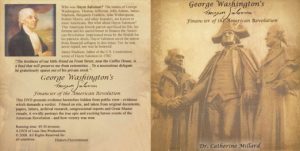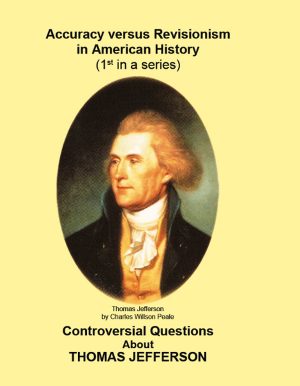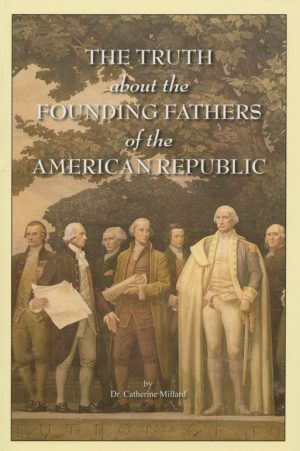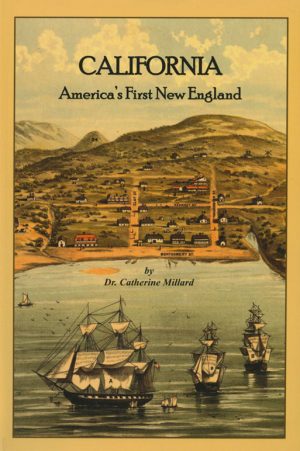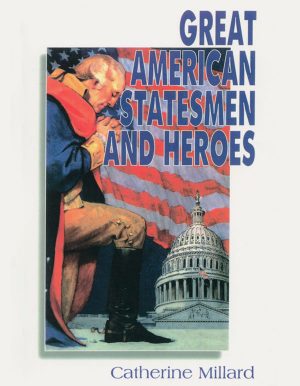Webster’s “Effects of Slavery on Morals and Industry,” published in 1793, is dedicated as follows:
To
The Connecticut Society for the Promotion of Freedom and
the Relief of Persons unlawfully holden in Bondage, this
small Treatise, designed to exhibit some pernicious effects
of Slavery, on the moral character, the industry and prosperity
of nations, is most respectfully inscribed, by their most
obedient and humble servant,
The Author.
As a Counselor at Law and Member of the Connecticut Society for the Promotion of Freedom, Webster states,
“The injustice of enslaving any part of the human race has been the subject of so much public discussion, and is so generally admitted by the inhabitants of Connecticut, that any attempt to prove it, would be a very ill compliment to the understandings of my enlightened fellow-citizens. Nor could any efforts of mine add novelty to the subject; so numerous, elaborate and diffuse have been the essays, and so powerful the eloquence employed in vindicating the violated rights of humanity, that language and rhetoric are exhausted.
But men, instructed by the avarice in a species of subtle casuistry, have learnt to make a material distinction between abstract rights and private interest or policy. In defending the African Slave trade, its advocates, compelled by the powers of reason to abandon the right, have taken refuge under the policy and necessity of the traffic. Here entrenched as in a stronghold, they maintain their station, and bid defiance to the attacks of reason and religion. To drive them from this citadel of defense, it becomes necessary to encounter them with their own weapons, and upon their own ground…
In taking this comprehensive view of the effects of slavery on men and nations, the society to whom this treaties is addressed, will pardon me, if I do not restrict myself to the consideration of the African Slave trade and the more immediate purposes of their institution: for the effects of despotism and a violent restraint of the natural liberty of man, are the same in all countries; subject however, to inconsiderable modifications from climate, soil, religion, or other incidental circumstances.
SLAVERY may be divided into political and civil. Political slavery, is a subjection to the uncontrolled exercise of public authority, whether that authority is in the hands of a king, a council, or a popular assembly. Civil slavery is the subjection to the absolute power of a particular proprietor, or master.
SLAVERY also exists in very different degrees in different countries. In some countries, the slave possesses by custom, or enjoys by indulgence, some rights and privileges; in others, he is stripped of all rights, and his services, his person and his life, are at the arbitrary disposal of his master. But as I am not about forming a systematic treatise on this subject, these distinctions will not be pursued; it being sufficient for my purpose to exhibit the general effects of slavery on men and nations.
Of the effects of slavery, the first in order are those which respect the character of the slave; indeed most of the pernicious consequences of slavery, whether public or private, may be traced to this one source, the effects of an unnatural and an unwarrantable restraint laid upon the will of the slave.
It is evidently the will of Heaven that men should be prompted to action by regard to their own benefit and happiness. Whenever by the positive institutions of society, or by external force, men are stripped of the power of exerting themselves for their own benefit, the mind, having lost its spring or stimulus, either ceases to act, and men become mere machines, moving only when impelled by some extraneous power; or if the mind acts at all, it is at the impulse of violent passions, struggling to throw off an unnatural restraint, and to revenge the injury.
But if we turn our eyes upon the present nations of Europe, we shall find multiplied proofs of this important truth, that slavery necessarily enervates the vigor of the human mind, in all climates and among all nations.
In Poland, the peasants, who are slaves, are so indolent that they do not furnish themselves even with a shelter from the inclemencies of the weather. The proprietors of the land to which the peasants are annexed, like the stock of a farm, are obliged to build cottages and barns for them, and to furnish them with feed, plows, horses, and every implement of husbandry. Nor do these miserable wretches provide themselves the ordinary comforts of life. Little more is to be seen within their hovels, than bare walls, a wooden stool, and a bed of straw. People who travel in that desolate country, and expect tolerable accommodations, must carry with them their own beds, their provisions, their knives, forks and spoons.
Very little better is the condition of the peasantry throughout the immense Russian empire. So abject is the situation and so complete the degradation of their minds, as to give rise to a general opinion in that country, that the peasants, if set at liberty, would not be capable of procuring a subsistence.
The miserable subjects of the Turkish Government pass whole days, musing, with their legs crossed, their pipes in their mouths, and almost without changing their attitude…
Surely no change of climate, no alteration in the productive powers of nature, can account for this moral phenomenon. To despotism alone, that foul master, before whose pestilential breath, the powers of the mind wither and decay, must we ascribe this woeful debasement of the modern Greeks…
The Moors in Algiers and Morocco, are generally given to robbery and piracy; and people cannot travel in safety at a distance from the towns in their country, without a marabout for a guard…
In ancient Rome, when a master was murdered, all his slaves under the same roof or within the hearing of a man’s voice, were by law condemned to death. Was not this inhuman law founded on the presumption that slaves were prone to commit crimes of this atrocious nature, and that they were all principals or accessories? That they were so abandoned and unprincipled in the opinion of a Roman Senate as not to be deserving of a legal process and conviction? The severity of laws is always preceded by a corruption of manners, and in a free state, it is the criterion by which we may ascertain the degree of national depravity…
Another fact to prove how generally mankind admit the tendency of slavery to corrupt the human heart, and how little they have been hitherto influenced by the important Truth, is the exclusion of a slave’s testimony from trials at law.
By the laws of ancient Rome, slaves could not be admitted as witness, and Montesquieu approves of the exclusion. Under the Emperor Augustus a law was made to enfranchise slaves for the purpose of rendering them admissible witnesses in cases of high Treason; but by an edict of the Emperor Tacitus, this law was abrogated.
By the laws of Poland, the testimony of the peasants, tho’ not excluded from courts, is considered as of less weight than that of freemen. If a lord kills his slave, the murder must be proved by two gentlemen or four peasants; the testimony of two freemen being deemed equivalent to that of four slaves…
In this State, slaves are admitted of the court…
The natural enquiry is why a slave should be a less credible witness than a freeman. The answer is easy; slavery corrupts the heart…
France and Prussia did not shake off the fetters of that system till within the present century; and Spain, Portugal, Bohemia, Hungary, Poland and Russia, show, by their poverty and sparse population, that those countries are still held in chains. England vindicated her rights at an earlier period, and has become proportionably richer.
Facts of this kind can be neither evaded, nor contradicted; their evidence is conclusive and irresistible; they demonstrate the doctrine before advanced, that “slavery in all its forms and degrees, is repugnant to the private interest and public happiness of man.”
Let our efforts then be united to devise the most easy and effectual mode of gradually abolishing slavery in this country. The industry and commerce and the moral character of the United States will be immensely benefited by the change – Justice and humanity require it – Christianity commands it. Let every benevolent heart rejoice at the progress already made in restraining the nefarious business of enslaving men, and pray for the glorious period when the last slave who sighs for freedom shall be restored to the possession of that inestimable right.
P.S. I am lately informed by an intelligent gentleman from Virginia, that many planters on the eastern shore in Virginia have, within a few years, liberated their slaves and employed them as hired men; and that such freed men are more profitable as hired men, than they were as slaves. I rely on this information and communicate it with pleasure, as it confirms what has been here advanced; and this success will accelerate a general emancipation of slaves in the United States – an event devoutly to be wished.”1
To learn more, click here. (Founders’ book)
___________________________
Bibliography:
1
Webster, Noah, L.L.D. Counsellor at Law, and Member of the Connecticut Society for the Promotion of Freedom. Effects of Slavery on Morals and Industry. Hartford: Printed by Hudson and Goodwin. MDCCXCIII. (1793). Library of Congress, Rare Book Collection.

